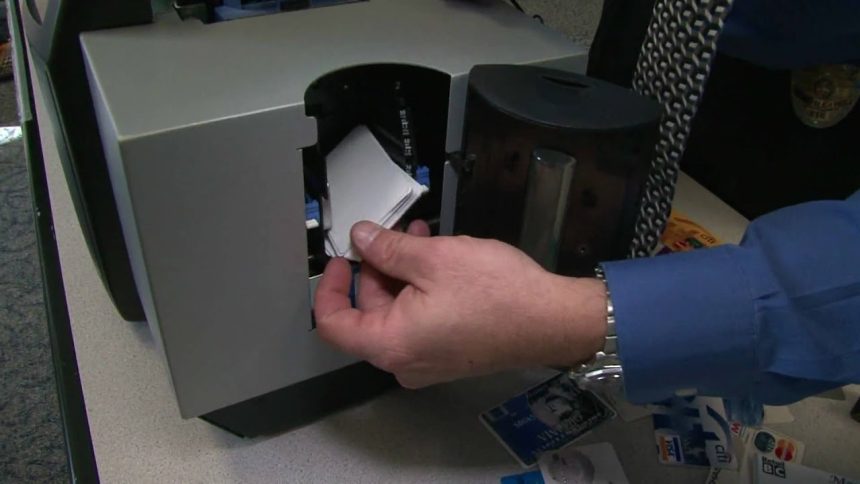In the world of cybersecurity and data protection, it’s important to understand the terminology and tools that cybercriminals use — not to engage in illegal activities, but to better defend against them. One term that bclub often comes up in underground forums and dark web marketplaces is “bclub premium dumps & CVV2 access.” While this might sound technical or obscure, learning what it means and how it works can empower individuals, IT professionals, and businesses to improve their security posture.
This beginner’s guide breaks down the key concepts of bclub premium dumps and CVV2 access, explaining what they are, how they’re used by criminals, and why you should be informed to protect yourself and your data.
What Are “bclub Premium Dumps” and “CVV2 Access”?
Understanding “Dumps”
In the context of credit and debit cards, “dumps” refer to the stolen raw data from a card’s magnetic stripe. This data typically includes:
- The card number (Primary Account Number or PAN)
- Expiration date
- Service codes
- Other sensitive data that can be used to create cloned cards
The term “premium” indicates that these dumps are high quality — usually fresh, verified, and more likely to be functional for fraudulent transactions.
What is CVV2?
The CVV2 (Card Verification Value 2) is the three-digit security code located on the back of most credit and debit bclub.tk cards. For American Express cards, this is a four-digit code on the front. It’s a critical security feature designed to verify that the person making a transaction has the physical card, especially in card-not-present scenarios like online shopping.
When criminals obtain both the dumps and the CVV2 codes, they can execute fraudulent online transactions with a much higher success rate.
What is “bclub”?
“bclub” is often the name of an underground marketplace or hacking group that specializes in distributing premium dumps and CVV2 data. These platforms cater to cybercriminals seeking access to stolen card information to commit fraud.
How Do Criminals Obtain Dumps and CVV2 Data?
Understanding how criminals obtain this sensitive data is key to knowing how to protect yourself. Common methods include:
1. Skimming and Shimming Devices
- Skimmers are physical devices attached to ATMs or point-of-sale (POS) terminals that copy the magnetic stripe data.
- Shimmers are more advanced and target chip-enabled (EMV) cards.
2. Malware Attacks
Malware installed on POS systems can capture card data directly from memory.
3. Data Breaches
Hackers exploit vulnerabilities in e-commerce websites, payment processors, or corporate databases to steal card information.
4. Phishing and Social Engineering
Criminals trick cardholders into revealing sensitive data through deceptive emails or fake websites.
Why Should Beginners Understand This?
You might think this is purely for criminals—but understanding dumps and CVV2 access is crucial for:
- Consumers: To be vigilant about where and how you share your card data.
- Businesses: To implement stronger payment security and detect suspicious activity early.
- IT & Security Professionals: To develop strategies to prevent, detect, and respond to data theft.
Risks Associated with bclub Premium Dumps & CVV2 Access
When your card data ends up in these illicit marketplaces, the consequences can be severe:
Financial Loss
Unauthorized transactions can drain your bank account or max out your credit limit.
Identity Theft
Stolen data can be used to open new accounts in your name.
Damage to Credit Score
Fraudulent activity can hurt your credit rating and affect future loan or credit applications.
Legal Trouble (for Buyers)
Buying or using stolen card data is illegal and can result in prosecution, fines, and imprisonment.
How Can You Protect Yourself?
1. Monitor Your Statements Regularly
Check your bank and credit card statements often and report suspicious transactions immediately.
2. Use Credit Over Debit
Credit cards offer better consumer protection and fraud dispute mechanisms.
3. Shop Only on Secure Websites
Look for HTTPS and verified payment gateways.
4. Enable Two-Factor Authentication (2FA)
Protect your online accounts, especially banking and shopping sites, with 2FA.
5. Avoid Public Wi-Fi for Transactions
Public Wi-Fi networks are often unsecured and vulnerable to hacking.
6. Freeze Your Credit if Needed
If you suspect fraud, freezing your credit report can prevent new accounts from being opened.
What Are Ethical Uses of This Knowledge?
Cybersecurity professionals use knowledge of dumps and CVV2 access to:
- Create better fraud detection algorithms
- Conduct penetration tests on payment systems
- Educate consumers and businesses about emerging threats
- Collaborate with law enforcement to track down cybercriminals
Ethical hacking and data research aim to protect the digital ecosystem rather than exploit it.
Legal Considerations and Consequences
Remember, engaging in any activity involving stolen credit card data is a criminal offense worldwide. Simply accessing or purchasing “bclub premium dumps” or CVV2 data can land you in serious legal trouble.
If you’re interested in cybersecurity, stick to ethical avenues like certifications (e.g., CEH, CISSP), training, and authorized testing.
Conclusion
“bclub premium dumps & CVV2 access” might sound intimidating, but knowledge is power. By understanding what these terms mean and how criminals operate, you can better protect yourself, your data, and your business from falling victim to fraud.
Always prioritize security, stay informed, and never engage in illegal activities. The world of cybersecurity offers countless legal and rewarding career paths where your skills can make a real difference.





